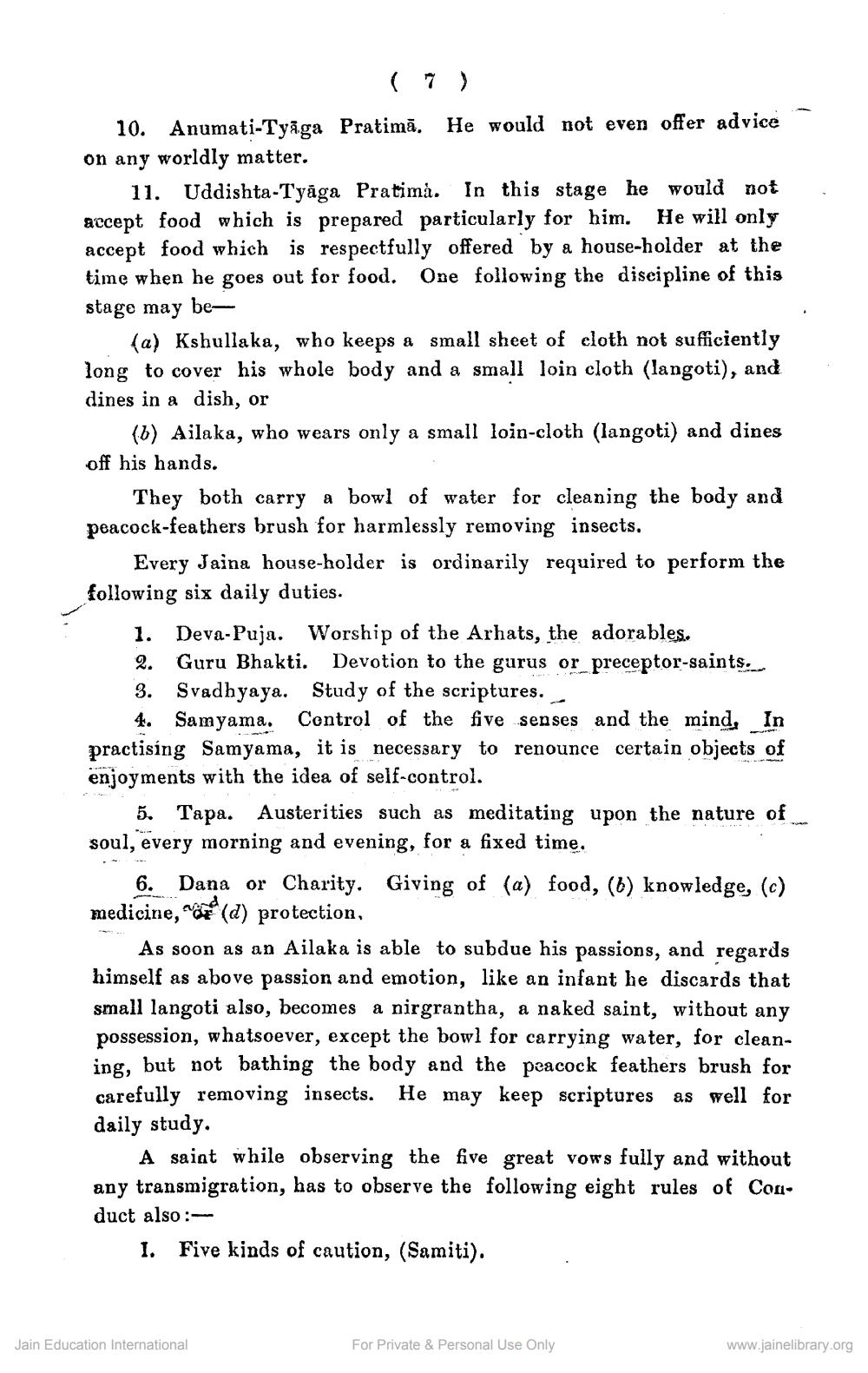________________
10. Anumati-Tyāga Pratimā. He would not even offer advice on any worldly matter.
11. Uddishta-Tyāga Pratimå. In this stage he would not accept food which is prepared particularly for him. He will only accept food which is respectfully offered by a house-holder at the time when he goes out for food. One following the discipline of this stage may be
(a) Kshullaka, who keeps a small sheet of cloth not sufficiently long to cover his whole body and a small loin cloth (langoti), and dines in a dish, or
(6) Ailaka, who wears only a small loin-cloth (langoti) and dines off his hands.
They both carry a bowl of water for cleaning the body and peacock-feathers brush for harmlessly removing insects.
Every Jaina house-holder is ordinarily required to perform the following six daily duties.
1. Deva-Puja. Worship of the Arhats, the adorables. 2. Guru Bhakti. Devotion to the gurus or preceptor-saints. 3. Svadhyaya. Study of the scriptures.
4. Samyama. Control of the five senses and the mind, In practising Samyama, it is necessary to renounce certain objects of enjoyments with the idea of self-control.
5. Tapa. Austerities such as meditating upon the nature of soul, every morning and evening, for a fixed time.
6. Dana or Charity. Giving of (a) food, (6) knowledge, (c) medicine, wo (d) protection,
As soon as an Ailaka is able to subdue his passions, and regards himself as above passion and emotion, like an infant he discards that small langoti also, becomes a nirgrantha, a naked saint, without any possession, whatsoever, except the bowl for carrying water, for cleaning, but not bathing the body and the peacock feathers brush for carefully removing insects. He may keep scriptures as well for daily study.
A saint while observing the five great vows fully and without any transmigration, has to observe the following eight rules of Couduct also:
1. Five kinds of caution, (Samiti).
Jain Education International
For Private & Personal Use Only
www.jainelibrary.org




